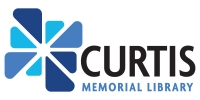Recent Genealogy Posts:
The British in India – genealogy database

The information in the database is “taken from a card index …available only at the British Library. The card index was compiled by members of staff at the India Office Records from the mid-1970s on to meet the growing interest in genealogy.”
The India Office Records is the custodian of the archives of the: East India Company (1600-1858); the Board of Control (1784-1858); the India Office (1858-1947); and the Burma Office (1937-1948).
“The collection contain much information of interest to family historians, mainly relating to European and Eurasian people. There are biographical sources for official and non-official inhabitants of the many overseas areas where the East India Company and India Office had influence, and also for home staff based in Britain.”
The records include details for: civil servants, military personnel, mariners, medical staff, chaplains, railway workers, law officers, and non-official inhabitants such as merchants and planters, free mariners, and missionaries. Included are: 300,000 births, baptisms, marriages, deaths and burials in the India Office records; biographical notes from a variety of sources for mainly British and European people in India c.1600-1949; and for people in other countries connected with the history of the British in India.
It can be difficult to find early records of Americans in foreign lands and, because this database is focused more on the British in India, I did not have any luck with it. However, it looks like a good resource so I thought I would pass it on – happy research!
This week’s recommendation – Genealogy Gems!

Brick Wall Problem Solving

If you have any issues opening the presentation, please email or call Mike Gorzka (mgorzka@curtislibrary.com 725-5242, ext. 218) or Liz Doucett (edoucett@curtislibrary.com 725-5242, ext. 211).
Thanks for joining us for the February genealogy get-togethers! We had a great turn-out and we promise that the next set of get-togethers will be held in the Morrell Meeting Room where we won’t be so crowded.
Technology for Genealogy

If you don’t have Powerpoint on your computer you can get a PDF version of the presentation here – Technology for Genealogy2
If you have any issues opening the presentation, please email or call Mike Gorzka (mgorzka@curtislibrary.com 725-5242, ext. 218) or Liz Doucett (edoucett@curtislibrary.com 725-5242, ext. 211).
At the Genealogy get-together Lynne Holland mentioned an additional map resource – here is the link to it – https://proquest.libguides.com/heritagequestonline/maps
Next week Lynne Holland will do a make-up Genealogy Get-together session on “Brick Wall Problem Solving”. The get-together will start at 5:30 in the library’s Seminar Room on Thursday, March 2. We hope to see you there!
Below are links to some genealogy resources – please note that HeritageQuest requires a Portland Public Library (PPL) card. For information on getting a PPL card (all Cumberland County residents are eligible), click here. Curtis Library has a card and can use it to get you access when you are in the library. Access to American Ancestors is through Curtis Library’s subscription and can only be used from inside the library.







